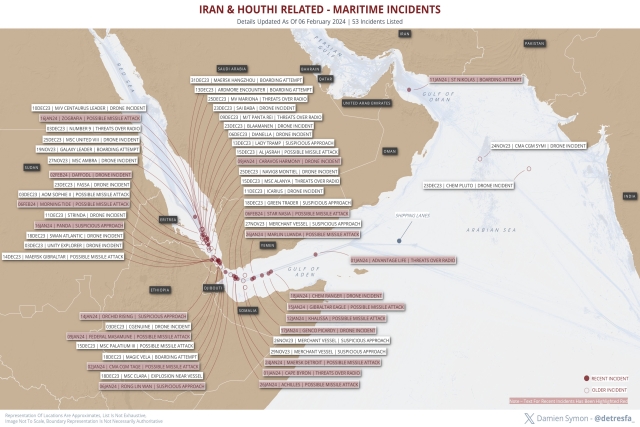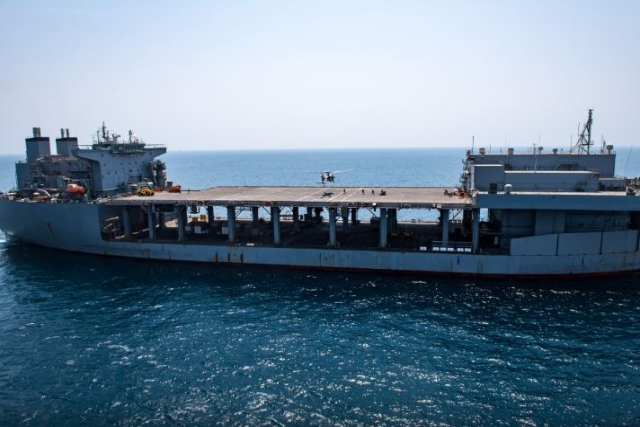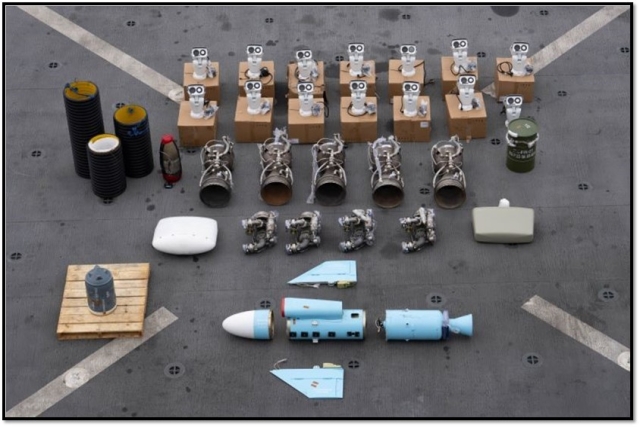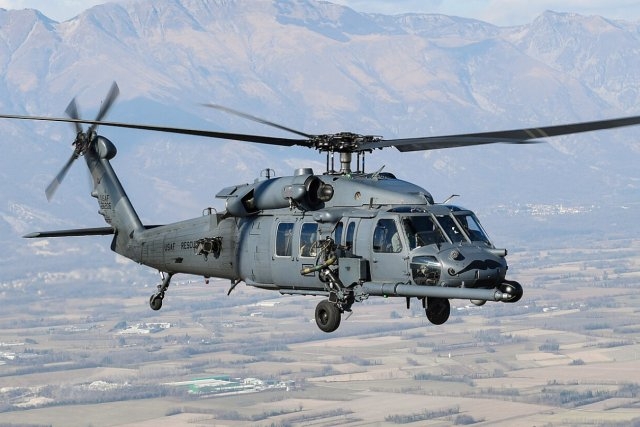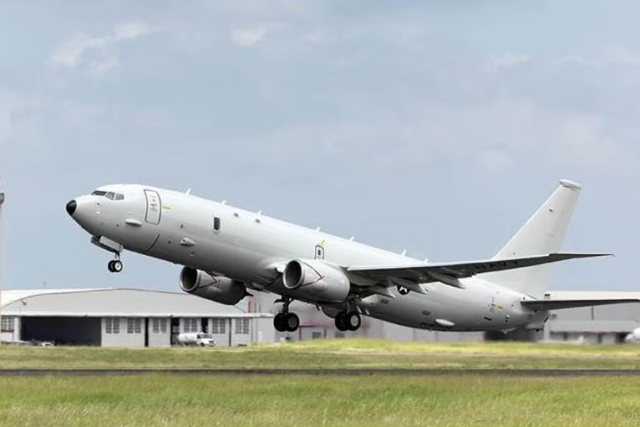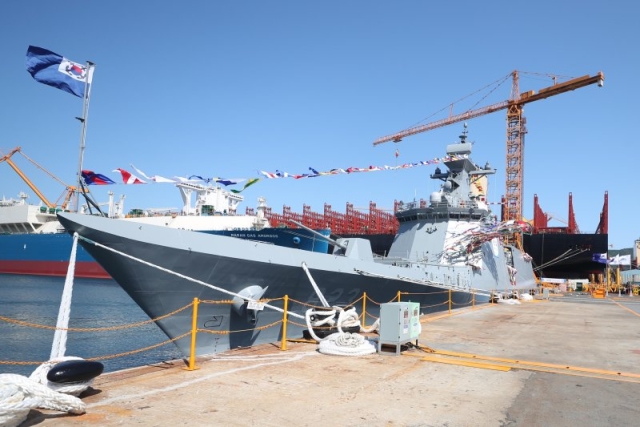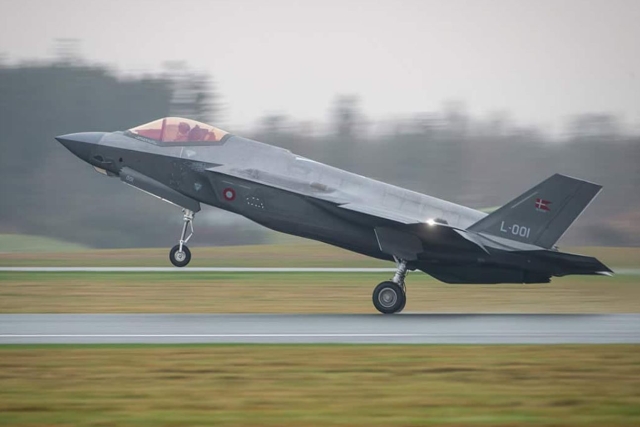U.S. CENTCOM Targets 4 Houthi USVs, 7 Anti-Ship Cruise Missiles in the Red Sea
Houthi assets present an immediate threat to the safety of U.S. Navy ships and merchant vessels: CENTCOM
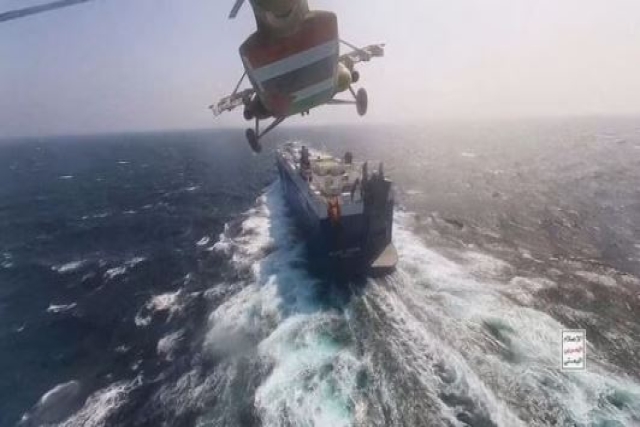
U.S. Central Command (CENTCOM) forces executed a series of self-defense strikes in Yemen on February 8, targeting four Houthi unmanned surface vessels (USV) and seven mobile anti-ship cruise missiles.
The strikes, carried out between 5 a.m. and 9 p.m. (Sanaa time), aimed to neutralize potential threats posed by these assets, which were identified in Houthi-controlled areas of Yemen.
A day earlier, U.S. forces struck two Houthi mobile anti-ship cruise missiles s prepared to launch against ships in the Red Sea.
According to CENTCOM, the targeted USVs and missiles were perceived as an imminent danger to U.S. Navy ships and merchant vessels in the region. The military action was undertaken to safeguard freedom of navigation and enhance the safety and security of international waters for U.S. Navy and merchant vessels.
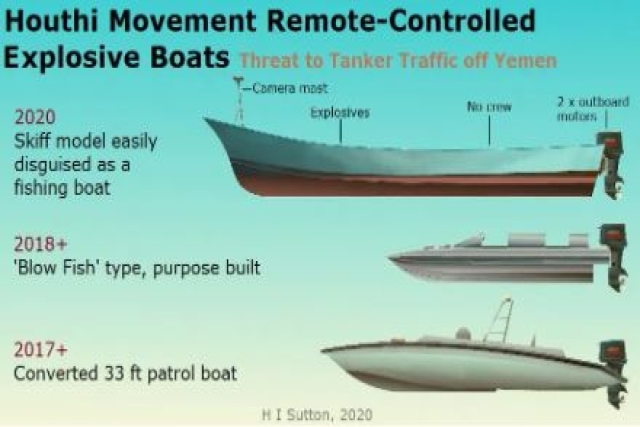
The Houthi rebels, responsible for launching attacks on ships in the Red Sea since November, have not acknowledged the losses incurred during the recent strikes. Their actions, seemingly connected to Israel's offensive in Gaza, have targeted vessels with varying degrees of association with the conflict, posing a threat to the crucial trade route connecting Asia, the Middle East, and Europe.
In response to the escalating tensions, the United States, along with the United Kingdom and other allies, has initiated airstrikes targeting Houthi missile arsenals and launch sites. The ongoing conflict underscores the challenges in the region and the strategic importance of safeguarding maritime routes amid geopolitical developments.
Houthi USVs
In 2020, Houthi rebels in Yemen used a new type of explosive boat in a failed attack on an oil tanker. The boat's design is based on a fishing skiff, making it easier to conceal and harder to identify as a threat. This design choice also potentially reduces construction costs by converting existing fishing vessels. An explosive boat is a small vessel loaded with explosives that rams the target, a concept previously employed by various countries during wartime. The Houthi models have been exclusively remote-controlled, referred to as Unmanned Surface Vessels (USVs) or Waterborne Improvised Explosive Devices (WBIEDs).
It is not known if the Houthis used this type of USV or if it has further upgraded them.
